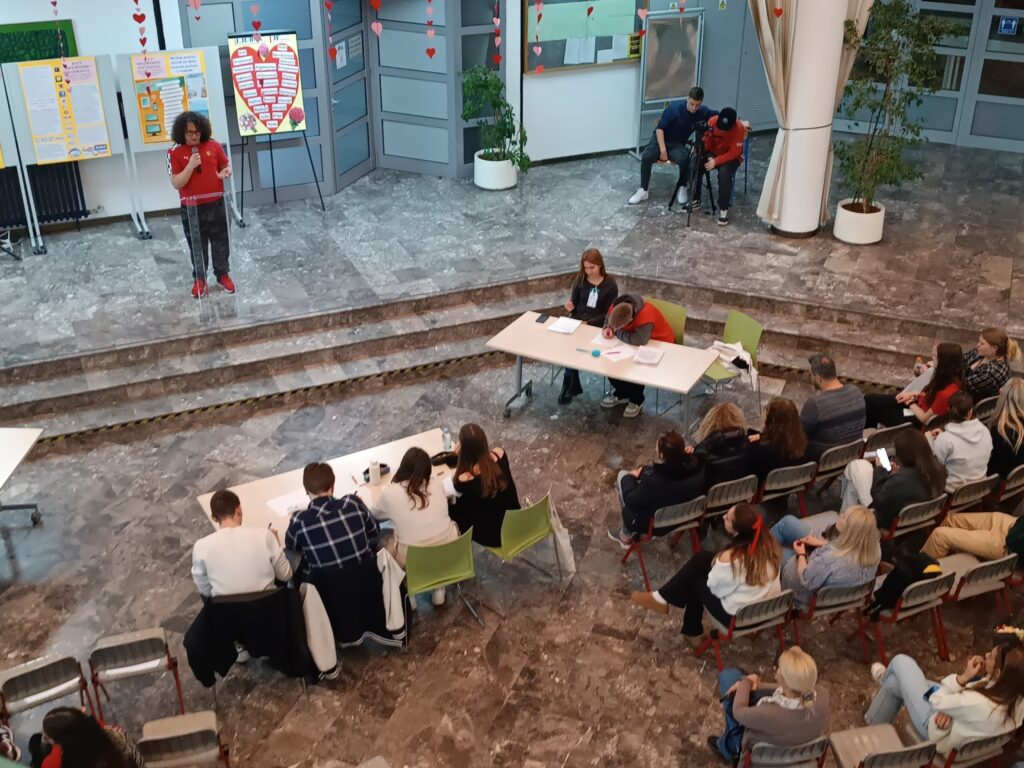Students and teachers at Pinheiro e Rosa Secondary School (Faro) participated, from the 11th to the 16th of February, in the 5th mobility of the Erasmus+ Project “Media and information literacy: Learning to think critically”, in Zagreb (Croatia).
With the participation of schools from Zagreb (Croatia), Reykjanesbær (Iceland), Istanbul (Turkey), Gela (Italy) and Baldones (Latvia), the project addresses the theme of “Common values, civic engagement and participation” through planned seminars and topics such as human rights, freedom of expression, sensationalism and manipulation, advertising, citizenship, democratic discourse, media and stereotypes, propaganda and democracy, Representation and Consumerism.
Also topics such as the use of Artificial Intelligence (AI) in educational processes, its advantages and disadvantages as well as the ethical aspects related to its use have been discussed by teachers and students from different countries.
In addition to promoting media and information literacy, lifelong learning and active citizenship, the project supports and promotes intercultural and social skills, critical thinking and responsible decision-making, which are important for active citizenship.
Throughout the project, several “Learning Scenarios” were created (activities to be implemented in the classroom, crossing these themes with the curriculum of different subjects) and an Online Course (MOOC) will be created for teacher training.
On this visit, students and teachers participated in seminars as diverse as “How easy it is to create fake news using AI”; How to start a school project using AI” “How to film and edit short news videos and podcasts” or “How to participate in cooperative learning environments using web tools and AI”
At the Faculty of Electrical and Computer Engineering at the University of Zagreb, the group participated in a lecture on the potential and possible futures of the application of Artificial Intelligence as well as the ethical implications of its use and how it can be a tool that will change the way our society will organize itself.
In addition to these seminars, the groups visited the Nikola Tesla Museum of Technology, the Croatian National Library and Croatian Public Television.
The students also participated in a debate on the topic “Is there privacy on the Internet?”
In addition to these training activities, the visit includes a contextualized visit to the historic center of Zagreb as well as the Samobor Carnival (called Fasnik and held in a location near Zagreb).
The students stayed in the homes of their Croatian colleagues, a methodology that served to further promote cultural and friendship ties between all project participants.
The sixth and final visit will be held in May, with ES Pinheiro e Rosa receiving participants from other countries.



















Comments